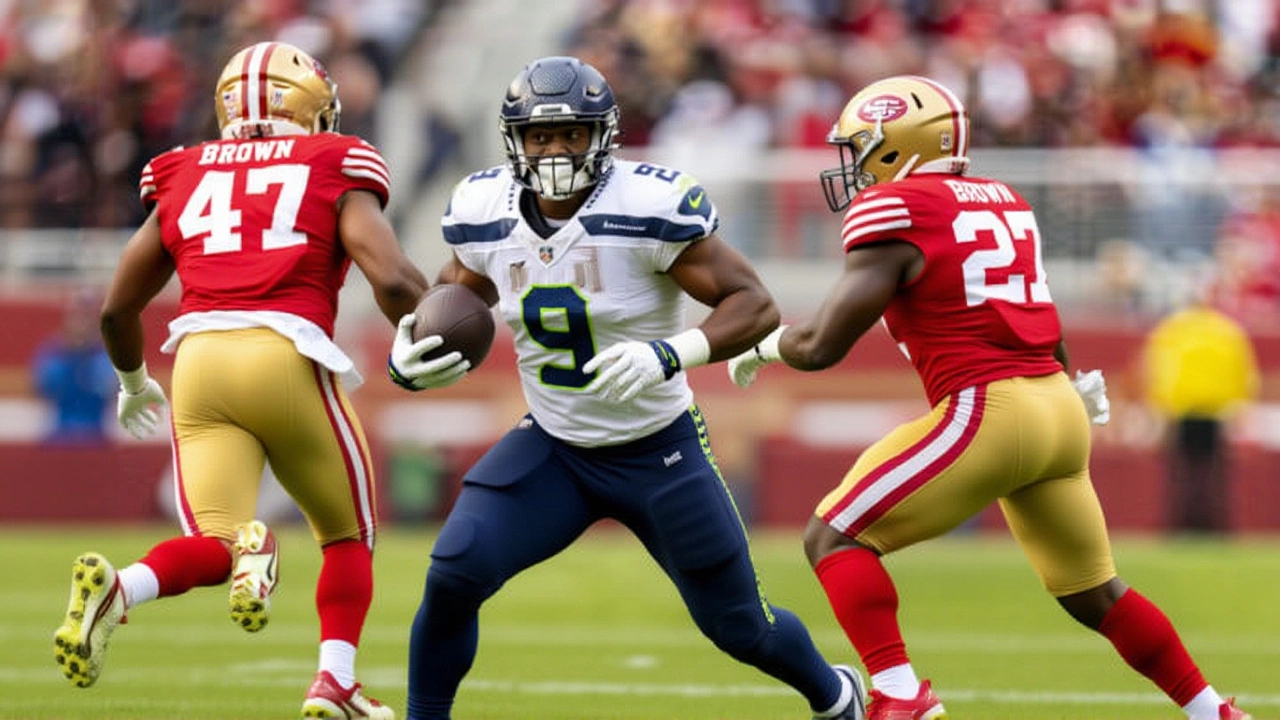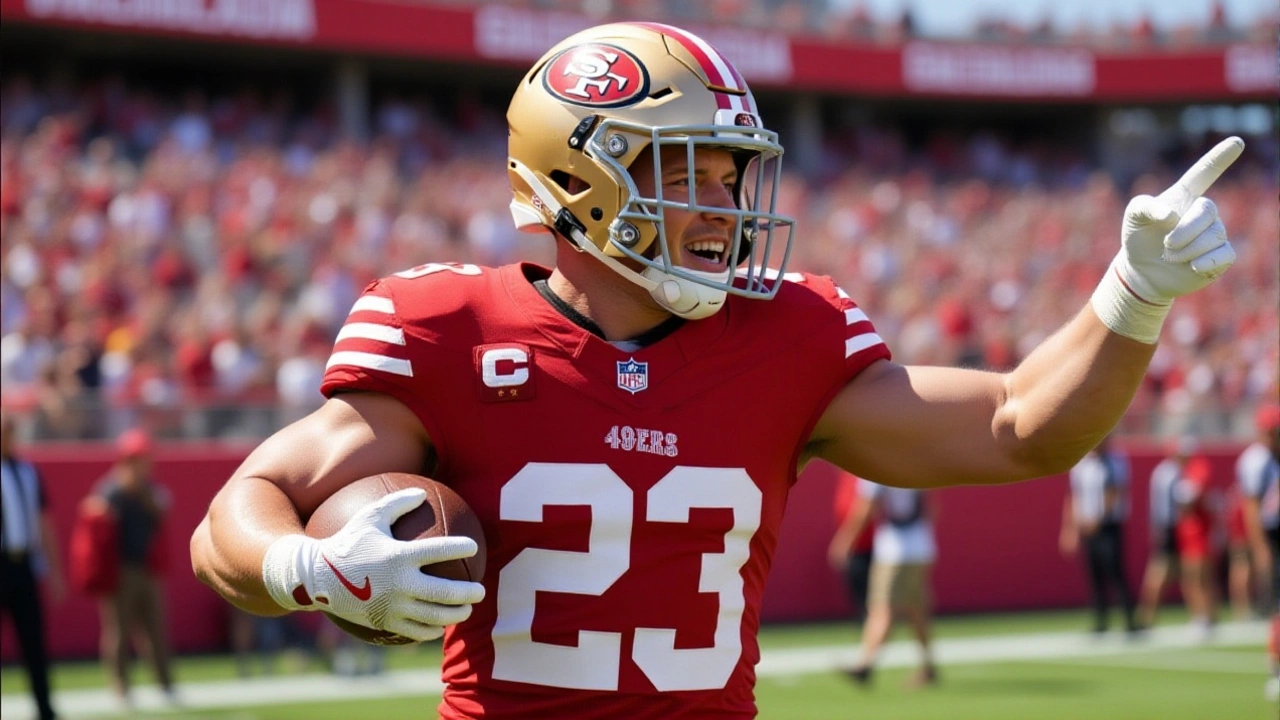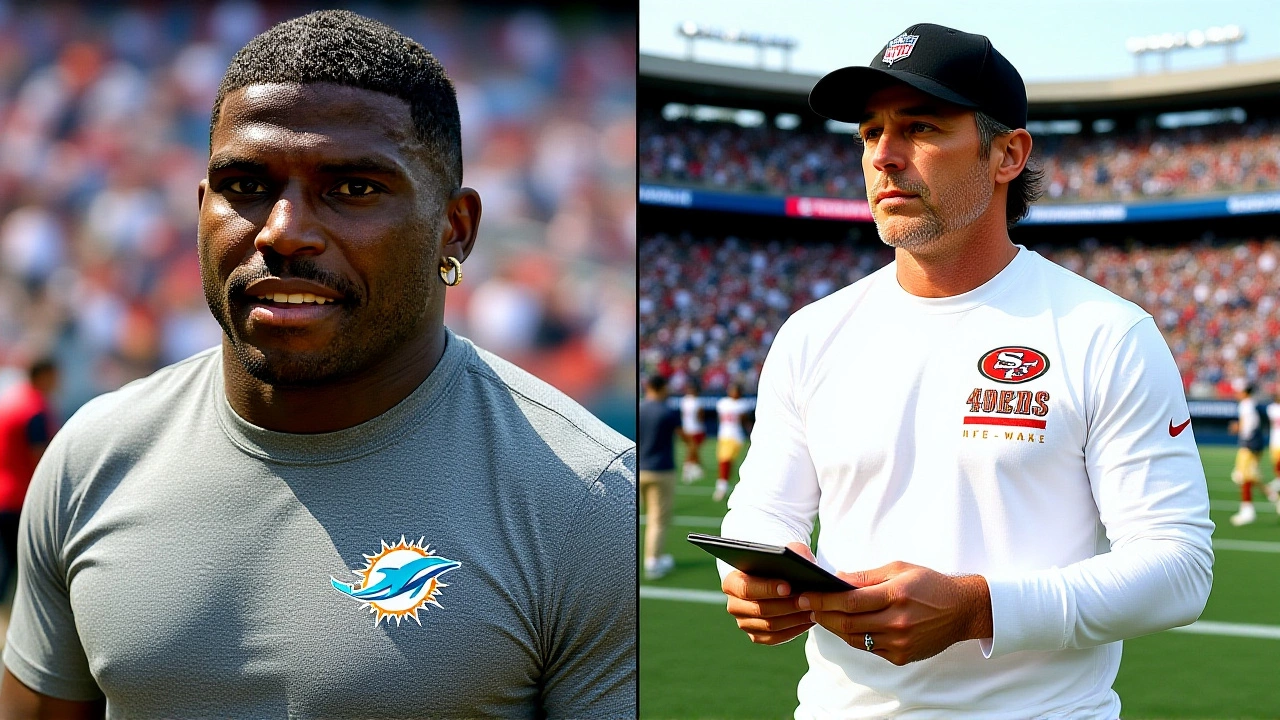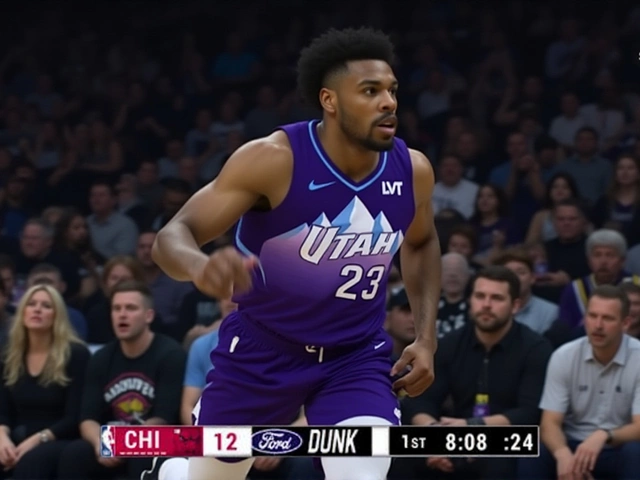
When the San Francisco 49ers open the 2025 NFL season on September 7 against the Seattle Seahawks, they won’t just be facing a division rival—they’ll be stepping onto the field with the easiest schedule in the entire league. According to ESPN Research released April 15, 2025, their opponents combined for a mere .415 winning percentage in 2024, the lowest in the NFL. That’s not luck. It’s the NFL’s scheduling formula in action—and it’s giving the 49ers a rare, quiet advantage after a brutal 6-11 season.
Why the 49ers Got the Softest Slate
The NFL’s schedule is built on a rigid formula: every team plays six divisional games, four against one AFC division, four against one NFC division, and three more based on final standings from the prior year. The 49ers, finishing last in the NFC West in 2024, avoided the top teams from other divisions. Meanwhile, the Los Angeles Rams, who won the division, got stuck with the Philadelphia Eagles, Baltimore Ravens, and Detroit Lions—three of the league’s most dangerous teams. As analysts Mike Florio and Chris Simms pointed out in an NFL on NBC YouTube video on May 14, 2025: "The Rams and the 49ers don’t have to [play those teams]. You definitely have an advantage there."
The 49ers’ non-divisional opponents? Mostly teams that struggled in 2024. They host the Jacksonville Jaguars (4-13) and Tennessee Titans (3-14)—the latter, so bad they earned the No. 1 overall pick in the 2025 draft. They travel to face the Houston Texans (10-7) and Indianapolis Colts (8-9), both of whom barely broke even. And here’s the kicker: the entire NFC West plays the AFC South this year—the worst division in football in 2024. Not a single AFC South team had a positive point differential.
Prime Time, But Not for Glory
Despite their 6-11 record, the 49ers are scheduled for five prime-time games in 2025: two Monday nights, two Sunday nights, and one Thursday night. That’s more than half the teams that made the playoffs last year. Their Thursday night showdown on October 2 against the Rams at the Los Angeles Memorial Coliseum will be the first real test: can this team turn schedule luck into real contention? ESPN’s projections have them at a 10.5-win over/under—a massive leap from last year. That’s not just optimism. It’s a recognition that this schedule could be the perfect springboard.

The Travel Burden and the Body Clock
There’s a catch. The 49ers will fly 28,363 miles this season—fifth most in the NFL, according to the SF Standard. They’ll make three long hauls to the East Coast, including a Monday night game in Indianapolis and a Sunday night showdown against the Chicago Bears in Week 17. But here’s the twist: West Coast teams have a hidden edge in late-night games. A Stanford study cited by the SF Standard found that East Coast teams, especially those playing on Sunday night, are often past their peak performance window by the time games end near midnight Eastern time. For the 49ers, that means their prime-time games aren’t just exposure—they’re a physiological advantage.
They’ll also face five 10 a.m. Pacific kickoffs—most since 2017—against the Saints, Buccaneers, Texans, Giants, and Browns. Those early starts are brutal, especially for a team that just lost 11 games. But again, the schedule gives them more of the good than the bad.
The Late Bye and the Closing Act
They get the latest possible bye week—Week 14. That’s no accident. The NFL knows the 49ers are a team on the rise, and they want fans watching late in the season. It also gives head coach Kyle Shanahan time to fix issues before the stretch run. And what a stretch run it is: seven of their final nine games are against teams that finished under .500 in 2024. They close the season at home against the Seahawks on January 3 or 4, 2026, a rematch that could decide the division crown.

What This Means for the Franchise
This isn’t just about wins and losses. It’s about momentum. After years of playoff heartbreak and a disastrous 2024, the 49ers have a rare opportunity: a schedule that doesn’t just give them a shot at respectability—it gives them a shot at contention. If quarterback Brock Purdy stays healthy and the defense rebuilds, this could be the year the 49ers return to the top of the NFC. And if they don’t? Then the problem isn’t the schedule. It’s the roster.
Levi’s Stadium in Santa Clara, California—home to nine of their 17 games—will be buzzing. With a 68,500-seat capacity and a fanbase that refuses to quit, the 49ers are poised for a comeback. The schedule didn’t hand them the trophy. But it gave them the clearest path to earn it.
Frequently Asked Questions
Why did the 49ers get such an easy schedule despite finishing 6-11?
The NFL’s scheduling formula awards teams with worse records in their division weaker cross-division opponents. Since the 49ers finished last in the NFC West, they avoided facing top teams from other divisions. Instead, they play teams like the Jaguars, Titans, and Texans—all of whom posted losing records in 2024. Meanwhile, division winner the Rams drew the Eagles, Ravens, and Lions.
How does the 2025 schedule compare to other NFC West teams?
The 49ers have the easiest schedule in the entire NFL. The Rams, as division champions, face three elite teams: Eagles, Ravens, and Lions. The Cardinals and Seahawks also drew stronger opponents than San Francisco, particularly in the AFC South matchups. The 49ers’ seven final games against sub-.500 teams are unmatched in the division.
Why do the 49ers have five prime-time games despite a losing season?
The NFL prioritizes marketability over record. The 49ers are one of the league’s most popular franchises with a massive national fanbase. Even after a down year, their games draw ratings. Plus, their late-season matchups against the Rams and Seahawks are must-watch games for divisional relevance, making them prime-time targets.
What’s the significance of the 49ers’ Week 14 bye?
Week 14 is the latest possible bye week in the NFL calendar. This gives the 49ers extra time to heal injuries and refine their game plan before the critical final four weeks. It also keeps them relevant in the playoff race late into December, maximizing fan engagement and TV viewership during a time when playoff contention is still up for grabs.
Will the 49ers’ travel schedule hurt their performance?
They’ll fly over 28,000 miles—fifth most in the league—but they also benefit from the West Coast advantage in late-night games. Studies show East Coast teams perform worse after midnight Eastern time, which aligns with the 49ers’ Sunday night games. Early 10 a.m. kickoffs are tough, but the schedule balances those with favorable prime-time windows and home-field advantage in nine games.
Is the 10.5-win over/under realistic for the 49ers in 2025?
It’s ambitious but plausible. With seven of their final nine games against sub-.500 teams, a 9-8 or 10-7 record is within reach if Brock Purdy stays healthy and the defense improves. The schedule gives them a clear path to 10 wins—something they haven’t done since 2021. But it also demands execution. Easy schedule doesn’t mean easy wins.
More Articles

What program in bodybuilding is best at my age, 47?
At the age of 47, bodybuilding might seem challenging, but it's definitely possible with the right program. It's essential to start with a routine that focuses on strength training and cardiovascular exercises to enhance overall fitness. Incorporating flexibility and balance training is also crucial at this age to prevent injuries. Diet plays a significant role too, so ensure a protein-rich diet for muscle recovery. Remember, it's not about lifting the heaviest weights but about consistent, safe, and effective workouts.

Kévin Denkey's 76th-Minute Goal Delivers FC Cincinnati 1-0 Win Over Columbus Crew in Hell is Real Playoff Opener
Kévin Denkey's 76th-minute goal gave FC Cincinnati a 1-0 win over Columbus Crew in Game 1 of the 2025 MLS playoffs, shifting momentum in the fierce Hell is Real derby. Game 2 heads to Cincinnati on October 30.

Keyonte George’s Clutch Three Wins It for Jazz in 150-147 Double OT Thriller Over Bulls
Keyonte George hit a game-winning three-pointer with 0.8 seconds left to lift the Utah Jazz over the Chicago Bulls 150-147 in double overtime on November 16, 2025, as Josh Giddey recorded his 10th triple-double as a Bull.
